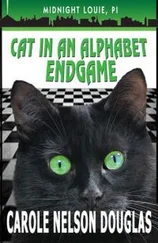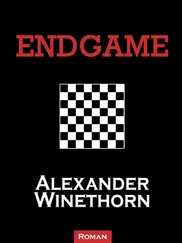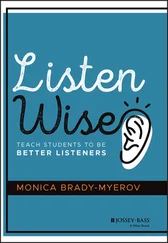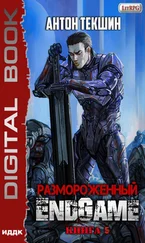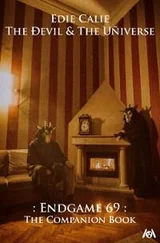As the game progressed, Bobby had only twenty minutes remaining on his clock to make the required forty moves, and he’d so far completed just sixteen of them. And then he saw it: Using a deeper insight, he realized that there was an extraordinary possibility that would change the composition of the position and give a whole new meaning to the game. What if he allowed Byrne to capture his queen, the most powerful piece on the board? Normally, playing without a queen is crippling, almost tantamount to an automatic loss. But what if Byrne, in capturing Bobby’s queen, wound up in a weakened position that left him less able to attack the rest of Bobby’s forces and less able to protect his own?
The idea for the move grew on Bobby slowly, instinctually at first, without any conscious rationale. It was as though he’d been peering through a narrow lens and the aperture began to widen to take in the entire landscape in a kind of efflorescent illumination. He wasn’t absolutely certain he could see the full consequences of allowing Byrne to take his queen, but he plunged ahead, nevertheless.
If the sacrifice was not accepted, Bobby conjectured, Byrne would be lost; but if he did accept it, he’d also be lost. Whatever Byrne did, he was theoretically defeated, although the game was far from over. A whisper of spectators could be heard: “Impossible! Byrne is losing to a 13-year-old nobody.”
Byrne took the queen.
Bobby, now so focused that he could hardly hear the growing murmur from the crowd, made his next moves percussively, shooting them out like poison darts, hardly waiting for Byrne’s responses. His chess innocence gone, he could now see the denouement perhaps twenty or more moves ahead. Yet, other than the rapidity with which he was responding to Byrne’s moves, Bobby showed little emotion. Rather, he sat still, placid as a little Buddha, stabbing out one startling move after another.
On the forty-first move, after five hours of play, with his heart slightly pounding, Bobby lifted his rook with his trembling right hand, quietly lowered the piece to the board, and said, “Mate!” His friendly opponent stood up, and they shook hands. Both were smiling. Byrne knew that even though he was on the wrong end of the result, he’d lost one of the greatest games ever played, and in so doing had become part of chess history. A few people applauded, much to the annoyance of the players whose games were still in progress and cared not that history had been made just a few feet away. They had their own games to worry about. “Shh! Quiet!” It was midnight.
Hans Kmoch, the arbiter, a strong player and internationally known theoretician, later appraised the meaning and importance of the game:
A stunning masterpiece of combination play performed by a boy of 13 against a formidable opponent, matches the finest on record in the history of chess prodigies.… Bobby Fischer’s [performance] sparkles with stupendous originality.
Thus was born “The Game of the Century,” as it was dubbed by Hans Kmoch.
Bobby’s game appeared in newspapers throughout the country and chess magazines around the world, and international grandmaster Yuri Averbach, among others, took notice, as did all of his colleagues in the Soviet Union: “After looking at it, I was convinced that the boy was devilishly talented.” The British magazine Chess relaxed its stiff upper lip, calling Bobby’s effort a game of “great depth and brilliancy.” Chess Life proclaimed Bobby’s victory nothing short of “fantastic.”
“The Game of the Century” has been talked about, analyzed, and admired for more than fifty years, and it will probably be a part of the canon of chess for many years to come. In the entire history of the game, in terms of its sheer brilliance, not only by a prodigy but by anyone, it might only compare to the game in Breslau in 1912 when spectators showered the board with gold after Frank Marshall—another American—also employed a brilliant sacrifice and beat Levitsky. In reflecting on his game a while after it occurred, Bobby was refreshingly modest: “I just made the moves I thought were best. I was just lucky.”
David Lawson, a seventy-year-old American whose accent betrayed his Scottish birth, was one of the spectators that night. Earlier he’d invited Regina and Bobby to dinner after the conclusion of the game, whenever it was finished, whoever won. A tiny man, Lawson was a collector of chess memorabilia and had a particular interest in the diminutive Paul Morphy, America’s first (though unofficial) World Champion. Lawson saw a connection between Fischer and Morphy in their precocious rise, although Bobby had yet to prove himself the world’s—let alone America’s—greatest player. Lawson was an opportunist, and although he was soft-spoken and possessed Old World manners, his invitation wasn’t proffered completely out of courtesy. He’d wanted to acquire one of Bobby’s score sheets in the boy’s own handwriting to add to his collection, and by coincidence he chose to attend the Byrne-Fischer encounter, not knowing, of course, that the game would become one of the most memorable in the two-thousand-year history of chess.
Lawson’s preference for dinner was Luchow’s, the German restaurant that had been far beyond the Fischer family’s means when they’d lived across the street from it some seven years before. But since it was past midnight, the kitchen was closed, so the trio repaired instead to an all-night local eatery on Sixth Avenue, the Waldorf Cafeteria—a Greenwich Village hangout for artists, writers, and roustabouts. It is here that the story of the score sheet becomes cloudy. Normally, in important tournaments, a score sheet is backed up with a carbon copy, the original going to the tournament organizers or referee for safekeeping should there be a subsequent dispute of any kind. The carbon is retained by the player. That night Bobby kept his copy—the carbon—which he wouldn’t part with for many years. Indeed, upon request, he’d take out of his pocket the folded and slightly worn sheet and show it to admirers. So what happened to the original?
Kmoch, the arbiter, sensing that Bobby was a champion in the making, had already begun collecting the prodigy’s original score sheets as if they were early Rembrandt sketches. And somehow, most likely by paying for it, Lawson acquired from Kmoch the original “Game of the Century” score sheet, which bore Kmoch’s notation in large red-penciled numerals: 0–1 (indicating the loss for Byrne, the win for Fischer). Eventually, upon Lawson’s death, the score sheet was purchased by a collector, sold again, and for the last number of years it has rested with yet another collector. In today’s market, the estimated auction price for the original score sheet is $100,000.
Bobby’s remuneration from the American Chess Foundation for his sparkling brilliancy? Fifty dollars.

It was his fourteenth birthday, a typically windswept March afternoon, bone-dry and cold, and as Bobby worked his way along Central Park South toward the Manhattan Chess Club, to the most important match of his burgeoning career, he was shivering from the wind, not from fear. It was a good feeling to get inside the well-heated club.
His opponent, Dr. Max Euwe, from Holland, was waiting. Fifty-six years old, conservatively dressed, and well over six feet tall, he appeared a giant next to Bobby. Aside from the four decades that separated their ages, they were a study in opposites. Euwe, a doctor of philosophy and a professor of mathematics at the Amsterdam Lyceum, was a former World Champion, having defeated his predecessor in 1935 with a studied and logical approach to the game. He was an even-tempered, soft-spoken, and mature grandmaster who represented the old guard, and over a lifetime of tournament warfare he’d played many of the game’s legendary figures. His gentle demeanor aside, he thrived on combat, and improbably, given his academic and chess prowess, he’d once been the European heavyweight amateur boxing champion. Bobby, in contrast, was nervous and volatile, the chess arriviste of Brooklyn, a colt of a player, and as it was beginning to develop, the spearhead of the coming generation of American players. He was pleased that he’d won the U.S. Junior Championship the previous summer, but above all, he’d begun to have increased confidence in himself after his celebrated “Game of the Century.” In just six months that game had established him as more than just a curiosity: He was now a new star in the international chess galaxy. As much as Bobby wanted to play Euwe, the renowned doctor was just as intrigued by the prospect of playing the prodigy.
Читать дальше
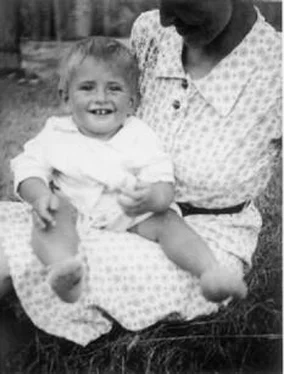


![Антон Текшин - EndGame [СИ]](/books/394477/anton-tekshin-endgame-si-thumb.webp)
